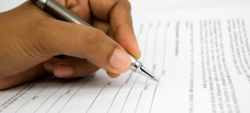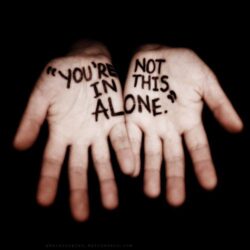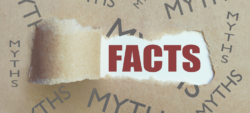Call us now 01926 402 498
Resource Hub
Welcome to our official Resource Hub containing information and tools that may help people who have been impacted by sexual abuse.
Answers to common questions
General
What is Sexual Assault?
Sexual assault can take many different forms and be defined in different ways, but one thing is clear, it’s never the victim’s fault.
Sexual assault refers to sexual contact or behavior that occurs without explicit consent of the victim. Examples of sexual assault include:
- Rape and attempted rape
- Sexual assault by penetration
- Fondling or unwanted sexual touching
- Forcing a victim to perform sexual acts, such as oral sex or penetrating the perpetrator’s body
What is sexual harassment?
Sexual harassment is any unwanted behaviour of a sexual nature that makes you feel distressed, intimidated, or humiliated.
You don’t have to have objected to a certain kind of behaviour in the past for it to be unwanted and constitute harassment.
Sexual harassment can include:
- Someone making sexually degrading comments or gestures
- Your body being stared or leered at
- Being subjected to sexual jokes or propositions
- E-mails or text messages with sexual content
- Physical behaviour, including unwelcome sexual advances and touching
- Someone displaying sexually explicit pictures in your space or a shared space, like at work
- Offers of rewards in return for sexual favours
- Sharing private sexual materials with intent to cause distress
- Asking questions about someone’s sex life
- Making sexual comments or jokes about someone’s sexual orientation or gender reassignment
Although sexual harassment happens everywhere, it is common at work. It can cause stress and hostility in the workplace, and over time, it can lead to physical and emotional problems, like headaches, nausea, cystitis, depression, anxiety, problems sleeping and eating, and loss of self-confidence. Some people can end up leaving their job rather than have to carry on enduring sexual harassment.
If this is happening to you, it is not your fault and you are not being unreasonable. The harasser is to blame and is abusing their position of trust and power.
What is child sexual abuse?
Child sexual abuse is a form of sexual violence that includes sexual activity with a minor, someone under the age of 18.
Child sexual abuse is never the fault of the child, it is 100% the responsibility of the abuser(s).
A child cannot consent to any form of sexual activity. When an abuser engages with a child in this way, they are committing a crime that can have devastating and long lasting effects on the victim for years.
Child sexual abuse does not need to include physical contact between a perpetrator and a child.
Examples, of child sexual abuse include:
- Exhibitionism, or exposing oneself to a minor
- Fondling
- Intercourse
- Masturbation in the presence of a minor or forcing the minor to masturbate
- Obscene conversations, phone calls, text messages, or digital interaction
- Producing, owning, or sharing pornographic images or movies of children
- Sex of any kind with a minor, including vaginal, oral, or anal
- Sex trafficking
- Any other contact of a sexual nature that involves a minor.
The vast majority of children who experience child sexual abuse are abused by someone they know, it is estimated that as many as 93% of all child victims under the age of 18, know the abuser.
A perpetrator does not have to be an adult to harm a child. They can have any relationship to the child including an older sibling or playmate, family member, a teacher, a coach or instructor, a caretaker, or the parent of another child.
Abusers can manipulate victims to stay quiet about the sexual abuse using a number of different tactics. Often an abuser will use their position of power over the victim to coerce or intimidate the child. They might tell the child that the activity is normal or that they enjoyed it. An abuser may make threats if the child refuses to participate or plans to tell another adult. Child sexual abuse is not only a physical violation; it is a violation of trust and/or authority.
It’s quite common for adult survivors of childhood sexual abuse to experience a range of health and other difficulties.
For example, survivors often go through:
- Shame, guilt and blaming themselves for what happened
- Recurrent depression or anxiety, panic attacks, phobias and/or flashbacks
- Feelings of anger, shame and/or worthlessness
- Disturbing thought patterns and intrusive memories
- Having memories of the abuse, fear and trauma triggered by particular objects, places, TV programmes, smells etc,.
- Feeling confused about what happened, only remembering bits of what happened or remembering it all in vivid detail
Some people find relief by self-harming, including cutting or burning themselves, neglecting their own needs and health or drinking and/or smoking too much.
If you have been sexually abused as a child you might recognise some of these effects in your own life. You might even feel mixed emotions about seeing all these possible effects written down.
What is force?
Force doesn’t always refer to physical pressure. Abusers may use emotional coercion, psychological force, or manipulation to coerce a victim into non-consensual sex. Some abusers will use threats to force a victim to comply, such as threatening to hurt the victim or their family or other intimidation tactics.
What is consent?
Awareness and understanding of sexual consent is very important, it helps to build healthy, fulfilling, and respectful relationships and reinforces the fact that any sexual activity without consent is a crime.
The statutory definition of consent is:
‘’Whether a complainant had the capacity (age and understanding) to make a choice about whether or not to take part in the sexual activity at the time in question. Whether he or she was in a position to make that choice freely, and was not constrained in any way.
Someone cannot give their consent when they are:
- Scared, threatened, or bullied
- Drunk or under the influence of drugs
- If they said ‘yes’ to something because you were scared for their life or safety
- If they froze or weren’t able to speak
What is rape?
Rape is a form of sexual assault. The legal definition of rape is ‘penetration with a penis of the vagina, anus or mouth of another person without their consent’.
What is Sexual Violence?
The term ‘’sexual violence” is the general term used to describe any kind of unwanted sexual act or activity, including sexual assault, child sexual abuse and sexual harassment.
If you think you might have been affected by any form of sexual violence, you can find information and services on this page and also on the Resources section of this website or you can contact us to talk confidentially.







